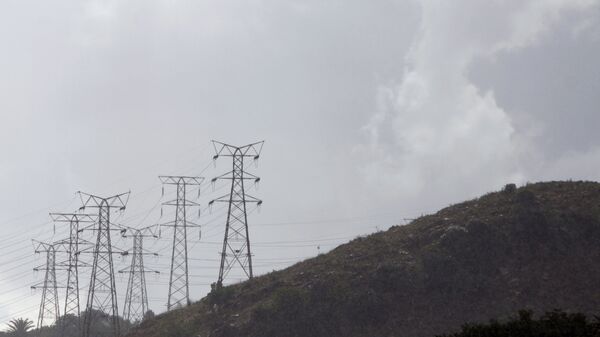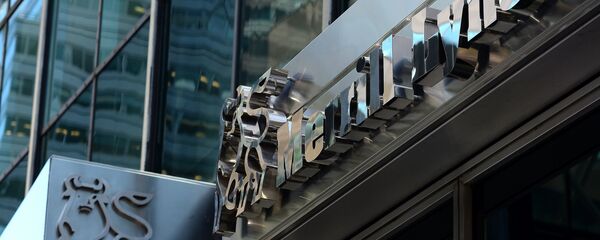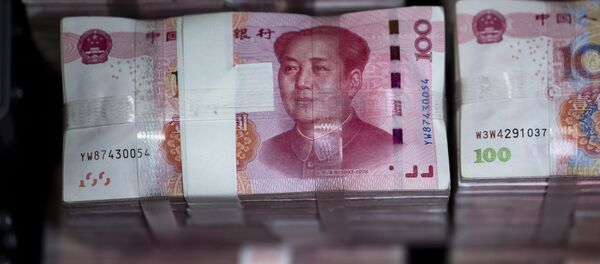Kristian Rouz — South Africa's largest electric power provider Eskom is raising 5.2 bln rand ($361 mln) through a combination of drawdowns against committed loans and the issuance of domestic bonds. At least 4 bln rand comes from the China Development Bank (CDB), which some economists see as enhancing Beijing's economic presence on the African continent.
Meanwhile, Eskom's rising debt poses a growing problem for the South African government. The ruling African National Congress (ANC) won a parliament majority earlier this month, and has vowed to improve the economy and battle corruption, among other things.
However, the Rainbow nation is facing 'junk' international credit ratings and sluggish economic growth. On-going external borrowing has hardly been helpful in restoring South Africa's investment appeal.
READ MORE: Brazilian Economy Faces Threat of Recession Amid Political Tensions
Meanwhile, Eskom is expected to run out of its borrowed money fairly soon, which could result in sweeping power outages across the country, similar to those that happened earlier this year.
Economists say the struggling utility – which provides 90 percent of all electricity in South Africa – needs structural reform, something the ANC has been considering for a while.
“We are in an economy that has not been growing… That troubles us,” South African President Cyril Ramaphosa said. “We have to embark on the reforms, speed up.”
Ramaphosa said a five-year reform plan is his main priority after the election. The president said Eskom's sustainability is vital to economic growth in South Africa, as recent power outages have disrupted the work of industrial enterprises and the services sector, slashing percentage points off the nation's GDP.
The proposal was met with concern among the Rainbow nation's trade unions, who said the plan could jeopardise job security and weigh on wages throughout the utility sector. However, Ramaphosa claims his plan is enjoying widespread support.
“Labour, the private sector and our own communities would have to play a role (in the reform). Without Eskom, our community stalls,” the president said. “It’s just too important to fail. It holds the fortunes, at an economic level, and the social life of our country, in its hands.”
Meanwhile, Eskom has amassed 420 billion rand in debt, and its low profitability is weighing on the company's ability to service its obligations. The huge debt burden also poses a problem for South Africa's international credit rating.
Some economists have suggested Eskom could be privatised, but officials expressed concerns over possible layoffs and rising utility costs for South Africa's households and businesses if such a move is taken.
READ MORE: S. Africa's Ruling ANC Faces Economy Test Amid Reduced Parliament Majority
Eskom also said it has agreed with its creditors and investors to obtain some 52 percent of its plan to borrow another 46 bln rand in the 2019-20 fiscal year. South Africa's finance ministry has been sceptical of Eskom's plans, and has recently blocked the utility's attempt to draw down some $482 mln from China's $2.5-billion credit line, provided in March.
For his part, Ramaphosa said Eskom will receive some 23 bln rand ($1.6 bln) per year over the coming three years – just enough to keep the company afloat and keep the lights on across the Rainbow nation.




